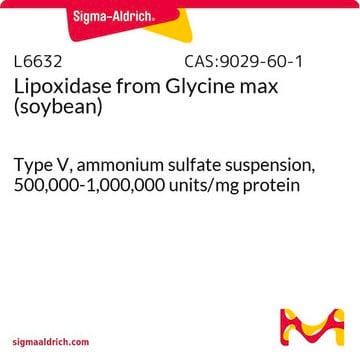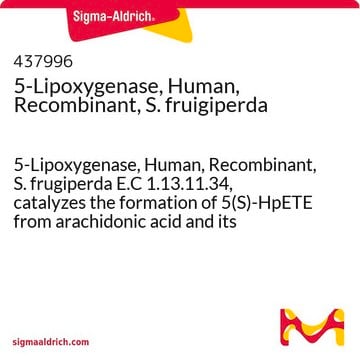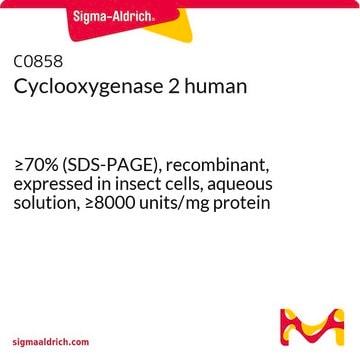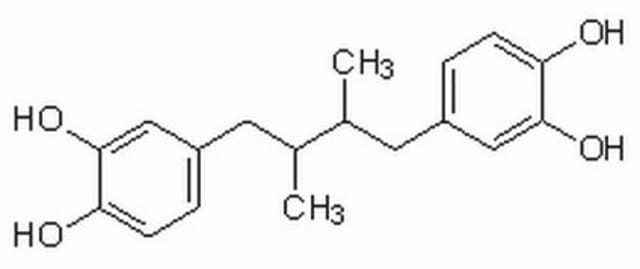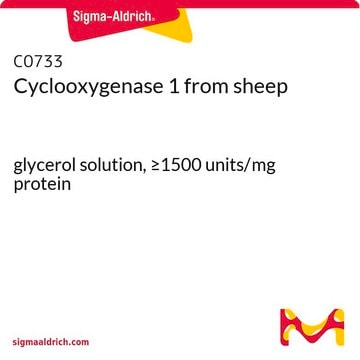L7395
Lipoxidase from Glycine max (soybean)
Type I-B, lyophilized powder, ≥50,000 units/mg solid
Sinónimos:
15-lipoxygenase, LOX A, Linoleate:oxygen oxidoreductase, Lipoxygenase
About This Item
Productos recomendados
type
Type I-B
Quality Level
form
lyophilized powder
specific activity
≥50,000 units/mg solid
mol wt
94 kDa
shipped in
wet ice
storage temp.
−20°C
¿Está buscando productos similares? Visita Guía de comparación de productos
General description
Application
- to study the effects of 2-(α-D-glucopyranosyl)methyl-2,5,7,8-tetramethylchroman-6-ol(TMG) on oxidation of lipoproteins
- as a representative enzyme for lipoxygenases in microplate assay platform to screen for enzymes degrading wood extractives
- as a positive control in lipoxygenase inhibitory activity assay
Biochem/physiol Actions
Unit Definition
Physical form
signalword
Danger
hcodes
pcodes
Hazard Classifications
Resp. Sens. 1
Storage Class
11 - Combustible Solids
wgk_germany
WGK 1
flash_point_f
Not applicable
flash_point_c
Not applicable
ppe
Eyeshields, Gloves, type N95 (US)
Certificados de análisis (COA)
Busque Certificados de análisis (COA) introduciendo el número de lote del producto. Los números de lote se encuentran en la etiqueta del producto después de las palabras «Lot» o «Batch»
¿Ya tiene este producto?
Encuentre la documentación para los productos que ha comprado recientemente en la Biblioteca de documentos.
Los clientes también vieron
Nuestro equipo de científicos tiene experiencia en todas las áreas de investigación: Ciencias de la vida, Ciencia de los materiales, Síntesis química, Cromatografía, Analítica y muchas otras.
Póngase en contacto con el Servicio técnico